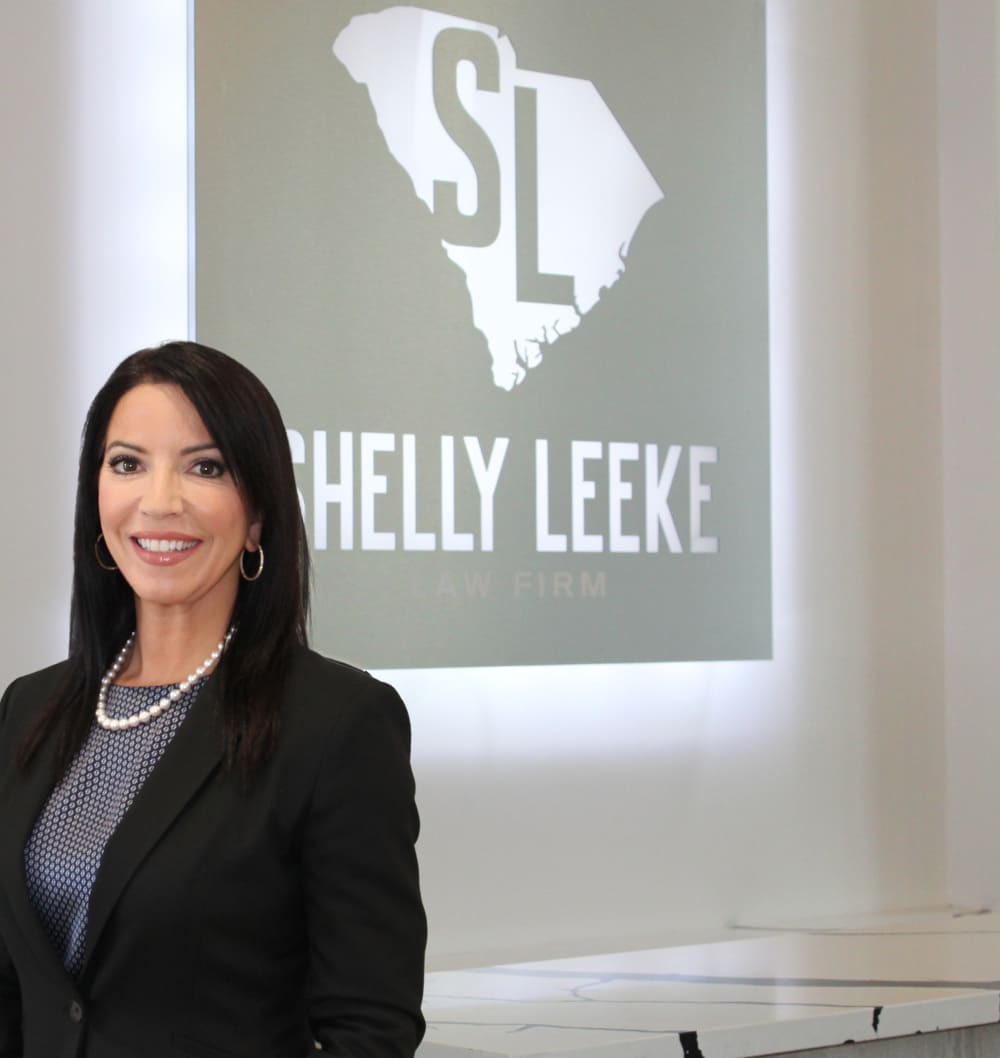
Navigating a four-way stop can be tricky for many drivers, especially in busy South Carolina intersections. Understanding the rules and etiquette of these intersections is crucial for maintaining safety on the roads and avoiding potential accidents.
As a featured lawyer on LawyerCentral, Shelly Leeke Law Firm is committed to educating drivers about their rights and responsibilities at four-way stops.
The rules governing four-way stops may seem straightforward, but their application in real-world scenarios can be difficult. A North Charleston car accident lawyer routinely handles cases resulting from misunderstandings at these stops.
Mastering the complications of right-of-way rules, knowing when to yield, and navigating various traffic scenarios are important skills for every driver.
Who Can Go First at a 4-Way Stop in South Carolina?
The general rule for four-way stops in South Carolina is straightforward: the first vehicle to come to a complete stop at the intersection has the right of way. This means that drivers should proceed through the intersection in the order in which they arrived and stopped. When multiple vehicles arrive simultaneously, the driver on the right has the right of way.
However, it is important to note that this rule assumes all drivers follow proper etiquette and pay attention to their surroundings. In reality, drivers must remain vigilant and prepared to yield even when they have the right of way, as not all motorists may follow the rules correctly. Through eye contact and hand signals, communication between drivers can help clarify intentions and prevent confusion.
If one vehicle is turning left while the other is going straight or turning right, the latter has the right of way. Left turns pose a greater risk as they involve crossing oncoming traffic lanes, requiring more time and caution to execute safely. Consequently, drivers proceeding straight or turning right are given precedence to maintain traffic flow and reduce potential hazards.

Situations that You Are Required to Yield To
While understanding who has the right of way is crucial, knowing when you are required to yield at a four-way stop is equally important. Yielding in these situations helps maintain the flow of traffic and prevents accidents. Some common situations where you must yield include:
- When emergency vehicles with flashing lights or sirens are approaching.
- To pedestrians in crosswalks or about to enter crosswalks.
- When a vehicle that arrived before you is still in the intersection.
- To vehicles already in the process of turning or proceeding through the intersection.
Remember that yielding is not just a legal requirement but also a matter of safety and courtesy. Even if you believe you have the right of way, it is always better to be safe and yield if there is any uncertainty about who should proceed first. Being patient and observant can help prevent accidents and ensure a smoother traffic flow for everyone.
When Pedestrians Have the Right of Way at a 4-Way Stop
Pedestrian safety is vital at four-way stops, and South Carolina law gives pedestrians the right of way in several scenarios. Understanding these rules is essential for both drivers and pedestrians to ensure safe interactions at intersections. Pedestrians have the right of way in the following situations:
- When crossing at marked crosswalks.
- When crossing at unmarked crosswalks at intersections.
- When a traffic signal gives them the “walk” signal.
Drivers must always yield to pedestrians legally crossing the street, even if it means waiting for them to clear the intersection before proceeding. This applies not only to pedestrians already in the crosswalk but also to those about to enter it. Drivers must remain alert and scan for pedestrians approaching from all directions, especially in areas with high foot traffic.

What to Do After a 4-Way Stop Accident
If you get into a car accident because someone is not yielding properly, you should first check for injuries and call 911 if anyone requires medical attention. Even if there are no apparent injuries, it is advisable to contact the police to file an official accident report, which can be crucial for insurance claims and potential legal proceedings. While waiting for the authorities to arrive, exchange insurance and contact information with the other driver(s) involved in the accident.
Make sure you preserve your accident evidence at the scene and document the area by taking photos of the vehicles’ positions, visible damage, and the overall intersection layout. If witnesses are present, politely ask for their contact information, as their statements could be valuable in determining fault. Exercise caution when talking to anyone at the accident scene, refraining from any statements that could be construed as an admission of fault or liability.
Even if you feel fine, some injuries may not be immediately apparent, and it is important to record them before you go back home. Contact your insurance company to report the accident and provide them with the information you have gathered, but avoid giving recorded statements without a lawyer present. Consider consulting with a car accident attorney in South Carolina who can guide you through the claims process, protect your rights, and help you pursue possible compensation for your damages and injuries.

What if More than One Party Was at Fault
Multiple parties may sometimes share responsibility for a four-way stop accident. The Code of Laws Title 15 – Chapter 38 states that South Carolina adheres to a modified comparative negligence rule, and this can affect how damages are paid out. Under this rule:
- Each party is assigned a percentage of fault for the accident.
- Under South Carolina law, a plaintiff may seek compensation for damages provided their degree of fault does not exceed 50% of the total fault for the accident.
- The amount of recoverable damages is reduced by the plaintiff’s percentage of fault.
If you are 30% at fault for an accident with $10,000 in damages, you can recover 70% of that amount, which is $7,000. However, if you end up being 51% or more at fault, you may lose the chance of receiving compensation. Understanding these nuances is crucial when dealing with insurance companies or wondering what the average settlement for a car accident is or could be.
Move Confidently Through Your Case with a South Carolina Car Accident Attorney
Do not let confusion about right-of-way rules or concerns about shared fault prevent you from seeking justice. We offer a free, no-obligation consultation to discuss your case and explain your options. Let us put our expertise to work for you, handling the legal intricacies while you focus on your recovery. Contact Shelly Leeke Law Firm today and take the first step towards resolving your four-way stop accident case with confidence and peace of mind.







